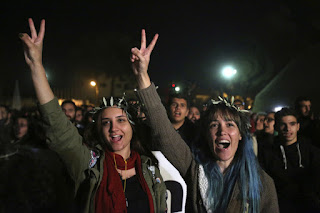By Esra Aygin
Bi-Communal Technical Committee on Education efforts to push forward with desperately needed changes in schools on both sides has been marred by lack of political will.
The committee, established by the Cypriot leaders in 2015, has not been able to touch history teaching and history books, which according to academics, should have been a priority if a culture of peaceful coexistence is to be cultivated.
It proved to be too politically sensitive particularly on the Greek Cypriot side and the committee was told not to touch history from day one.
“There is an argument that you shouldn’t do anything in relation with history before a solution. Only after,” says associate Professor Charis Psaltis at the University of Cyprus.
“However, now the two leaders are facing the limits of the historical narratives their communities adhere to. If the historical narratives were otherwise, they would have more flexibility to make more concessions.”
The committee has managed to get the political go-ahead for a project it devised to bring together Greek Cypriot and Turkish Cypriot primary and secondary school students at the buffer zone during school hours to jointly receive anti-racism education and education for a culture of peace.
Children and teachers from schools across the island will participate in the project ‘Imagine’.
The pilot has recently begun with four schools on each side and the project will be fully launched in September with the start of the new school year.
The initial aim was to organise the get-togethers in turns at schools in the north and south.
However, visiting schools in the north was rejected due to political concerns over ‘indirect recognition’ of the Turkish Cypriot entity.
Establishing a framework of contact between teachers and students was one of the three goals of the committee.
The other two goals were to assess the current situation of the education system on both sides; and to look into what kind of policies could be promoted in a federal Cyprus with a view of peaceful co-existence, such as a common history teaching and Turkish and Greek language teaching.
Assessment of the current situation of the education systems should have been carried out by studying the curricula, books and teaching practices, the work has been– again through a political decision – limited to looking at the already existing academic research on curricula and textbooks.
The committee nevertheless, found a lot of problematic issues in both curricula, especially in relation with militarism, nationalism, racism, prejudices and discrimination.
“Instead of promoting contact, coexistence, reconciliation, trust, the education system reproduces master narratives and cements partition,” said Psaltis.
“There is this ‘We will never forget’ policy on both sides,” says Associate Professor Senel Raman Husnu at the Eastern Mediterranean University. “We need to be able to teach our history, but at the same time, enhance empathy and perspective.”
It is clear that the problems of the education system in Cyprus are well studied and diagnosed.
The only thing missing is the political will and courage to let the experts implement the solutions so that new generations are not poisoned against each other.
